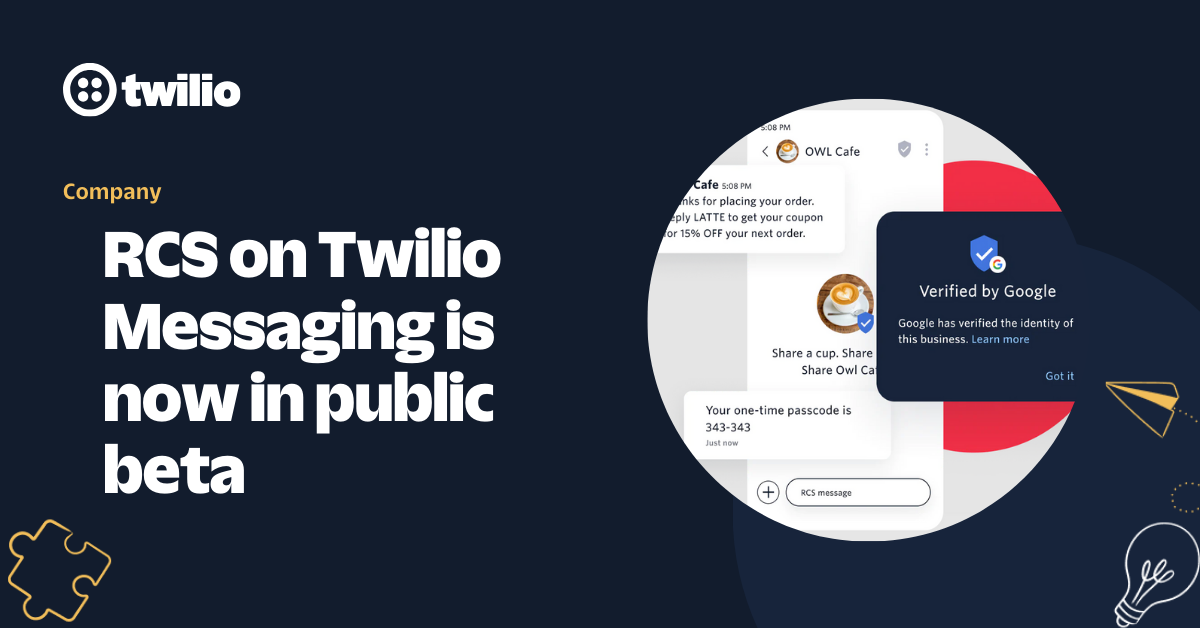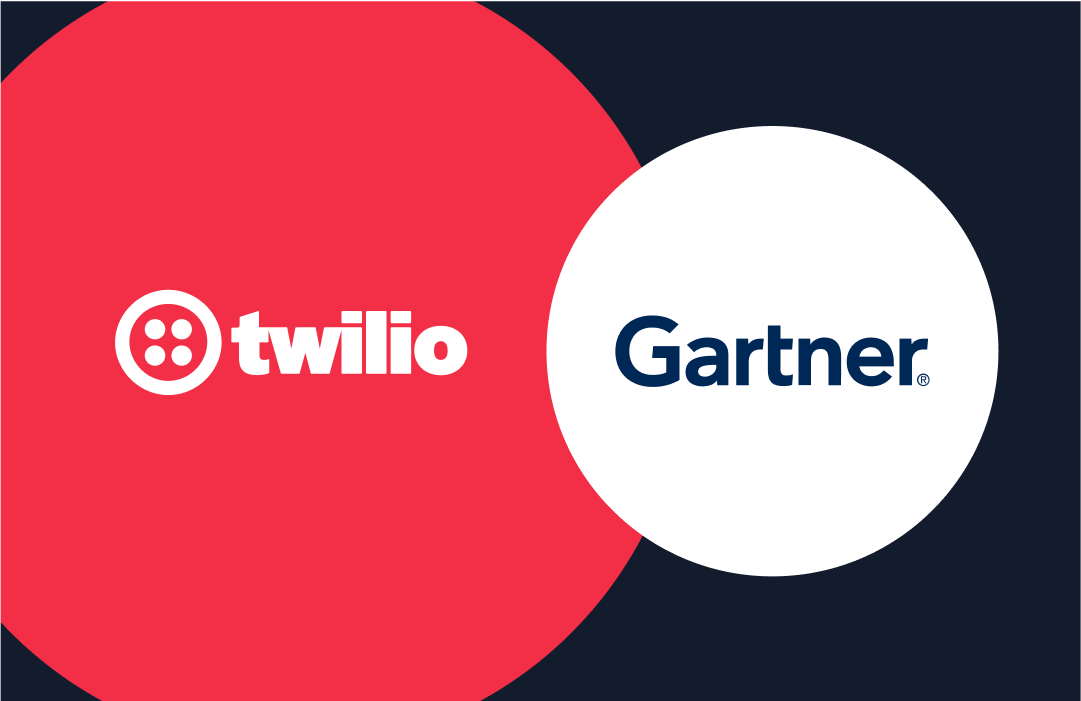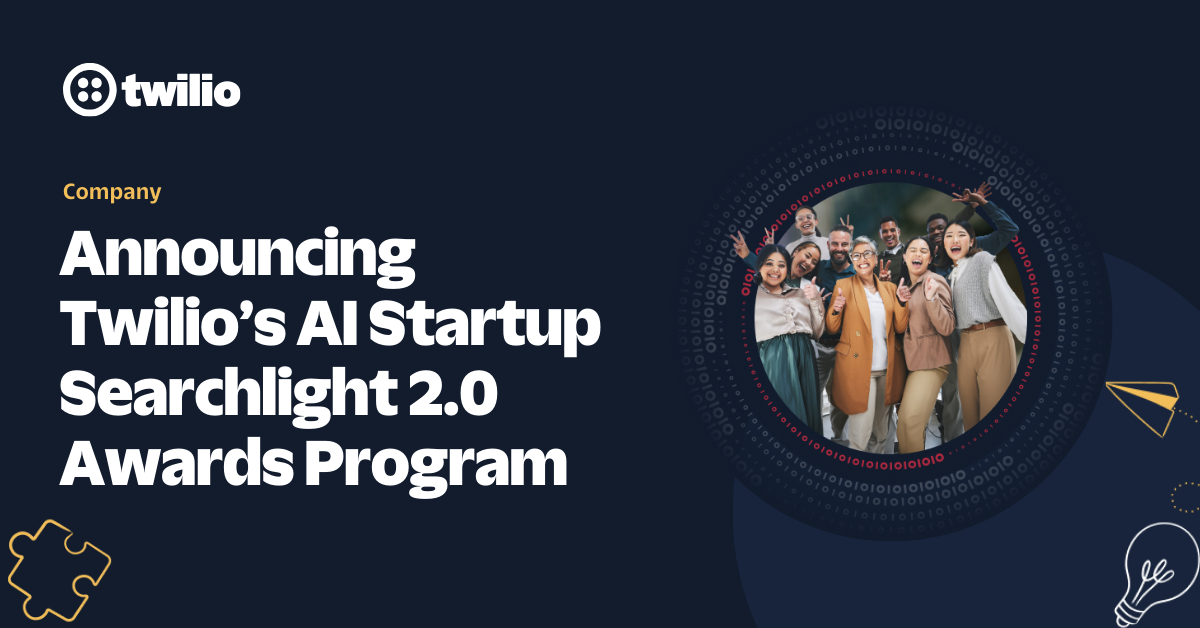-
Rooted in Tradition, Powered by Tech: One Acre Fund’s Digital TransformationClaire FitzGerald
-
 Behind the Builder: Khushbu Shaikh, Technical Account LeadTwilio Employer Brand Team
Behind the Builder: Khushbu Shaikh, Technical Account LeadTwilio Employer Brand Team -
 Drumroll please… Meet the 2025 finalists of our Engagement Awards
Drumroll please… Meet the 2025 finalists of our Engagement Awards -
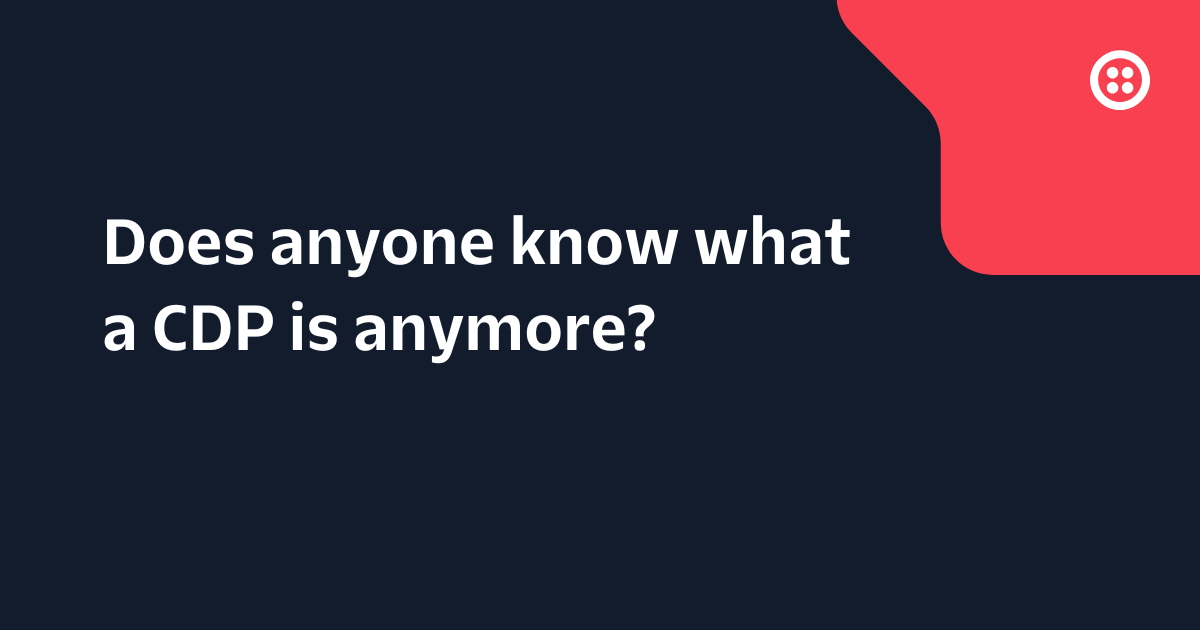 Does anyone know what a CDP is anymore?Steven Schuler
Does anyone know what a CDP is anymore?Steven Schuler -
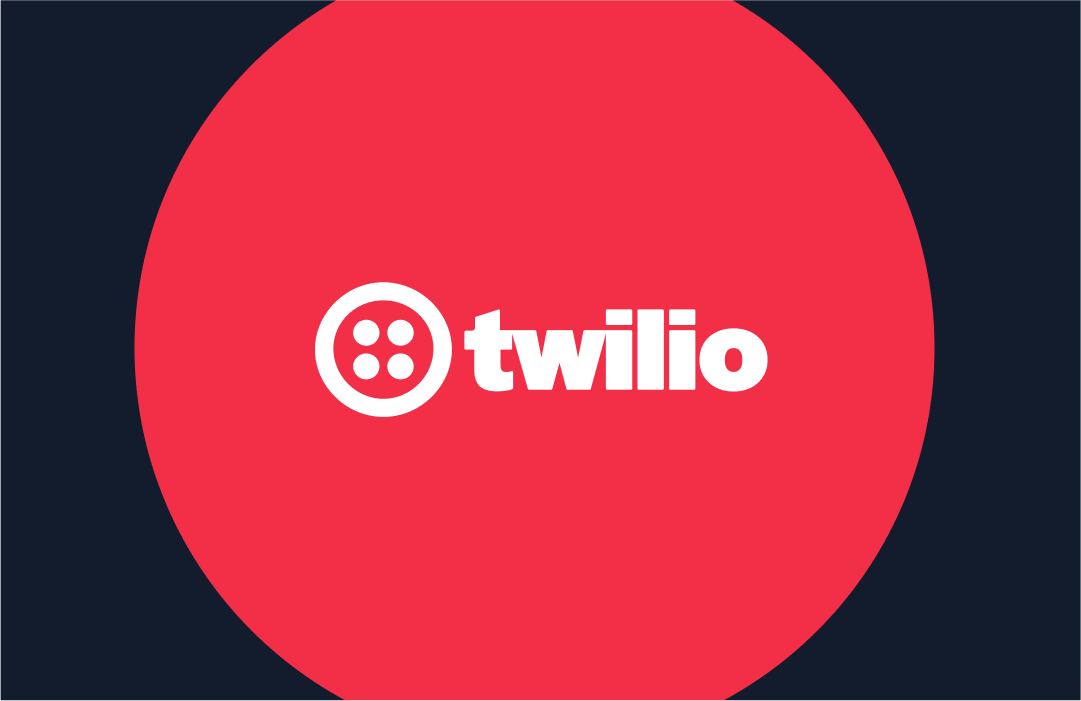 Improving Your Chances of A2P 10DLC Registration Approval
Improving Your Chances of A2P 10DLC Registration Approval -
Introducing Generative Custom Operators for Voice IntelligenceJeff Eiden
-
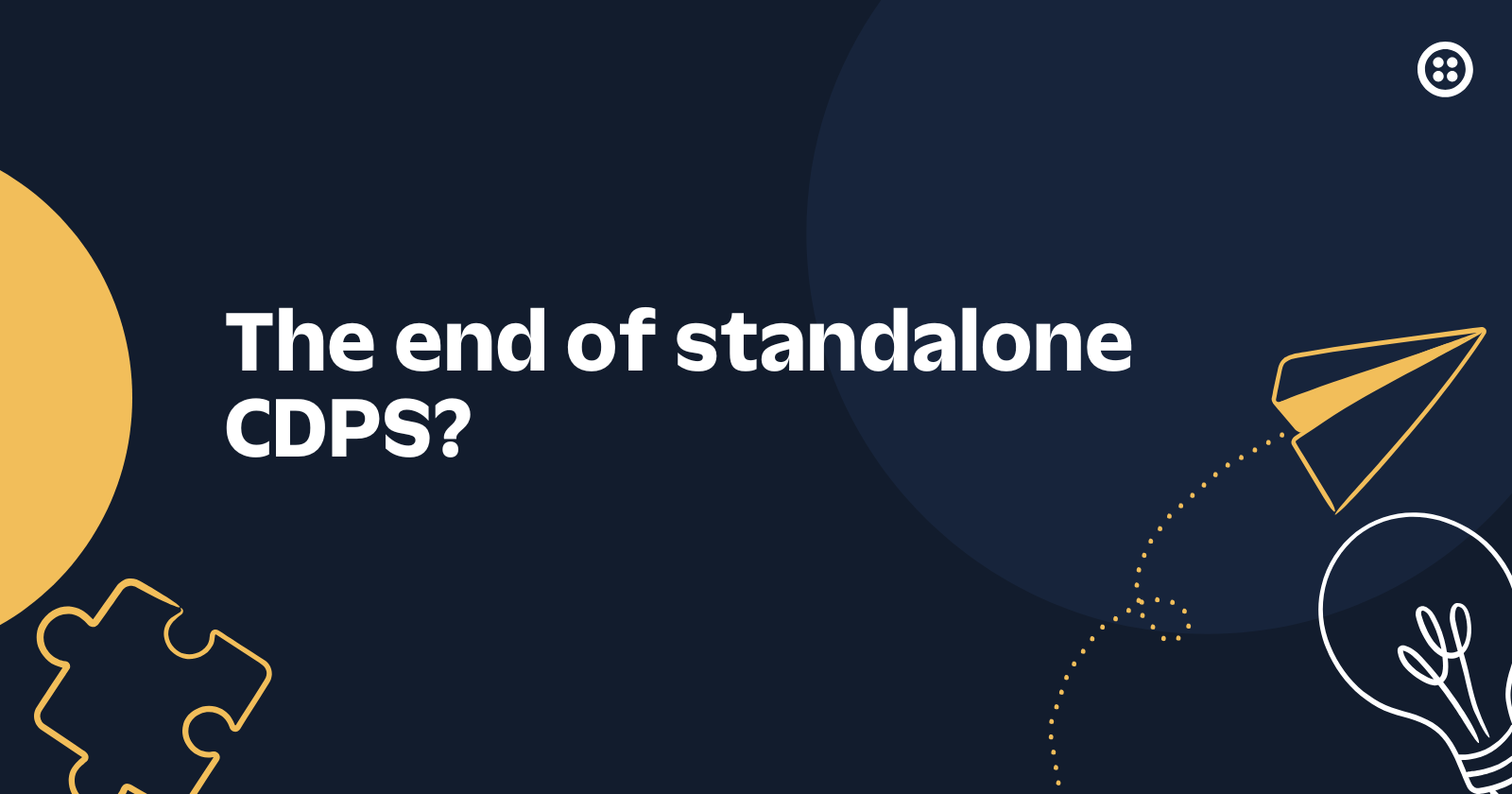 The end of standalone CDPs?Robin Grochol
The end of standalone CDPs?Robin Grochol -
 Improving Your Chances of Toll-Free Verification ApprovalTwilio
Improving Your Chances of Toll-Free Verification ApprovalTwilio -
 Twilio Named a Leader for the Fifth Time in IDC Marketscape for CPaaS!Kathryn Murphy
Twilio Named a Leader for the Fifth Time in IDC Marketscape for CPaaS!Kathryn Murphy
Sign up for the Digital Dispatch
Subscribe to Twilio's Digital Dispatch, a monthly email roundup of the best digital engagement insights from across Twilio.
All set! Check your email.
Free trial
Start building with Twilio for free
Sign up and start building your ideal customer engagement experience today.



